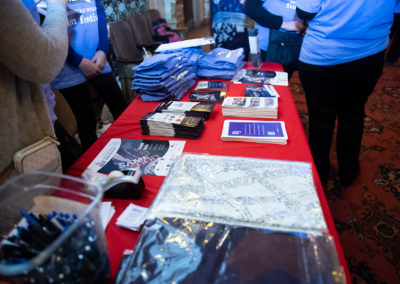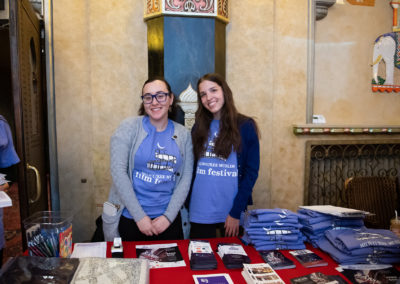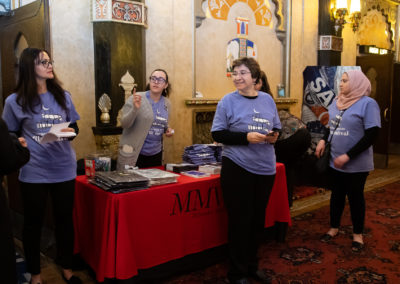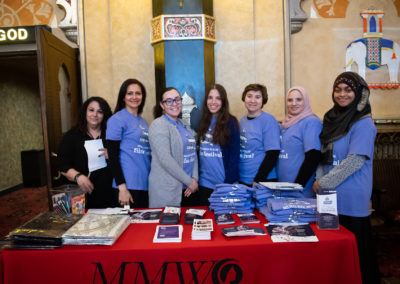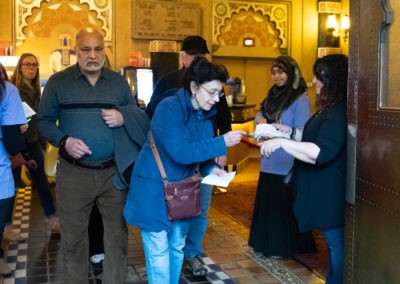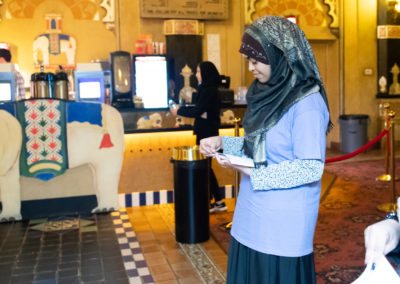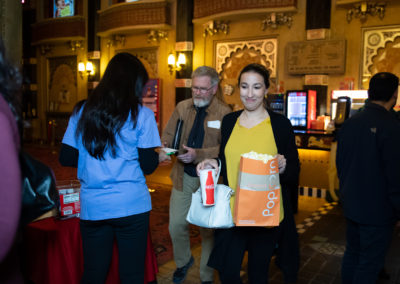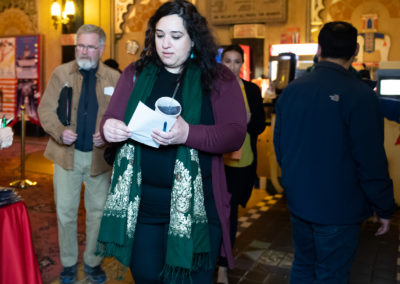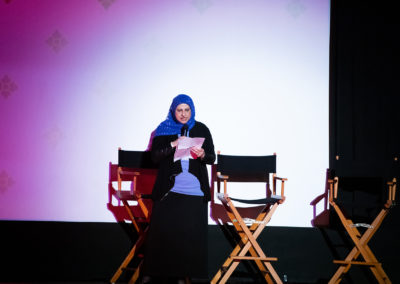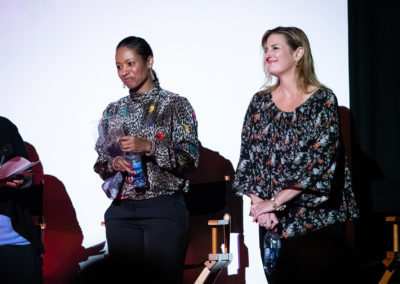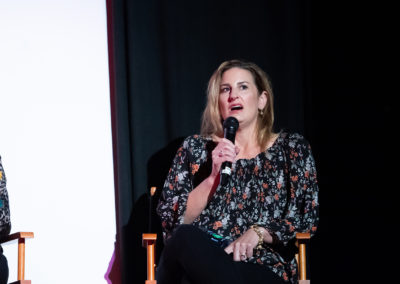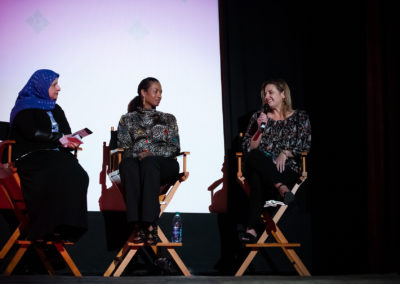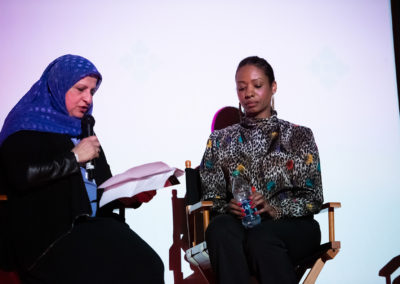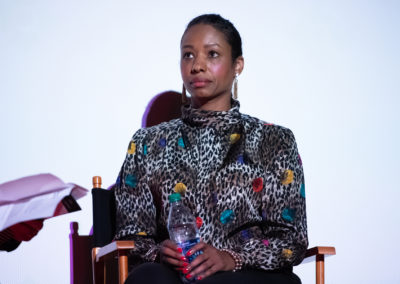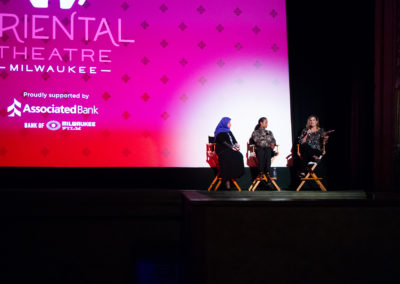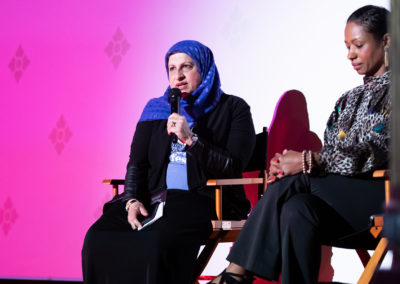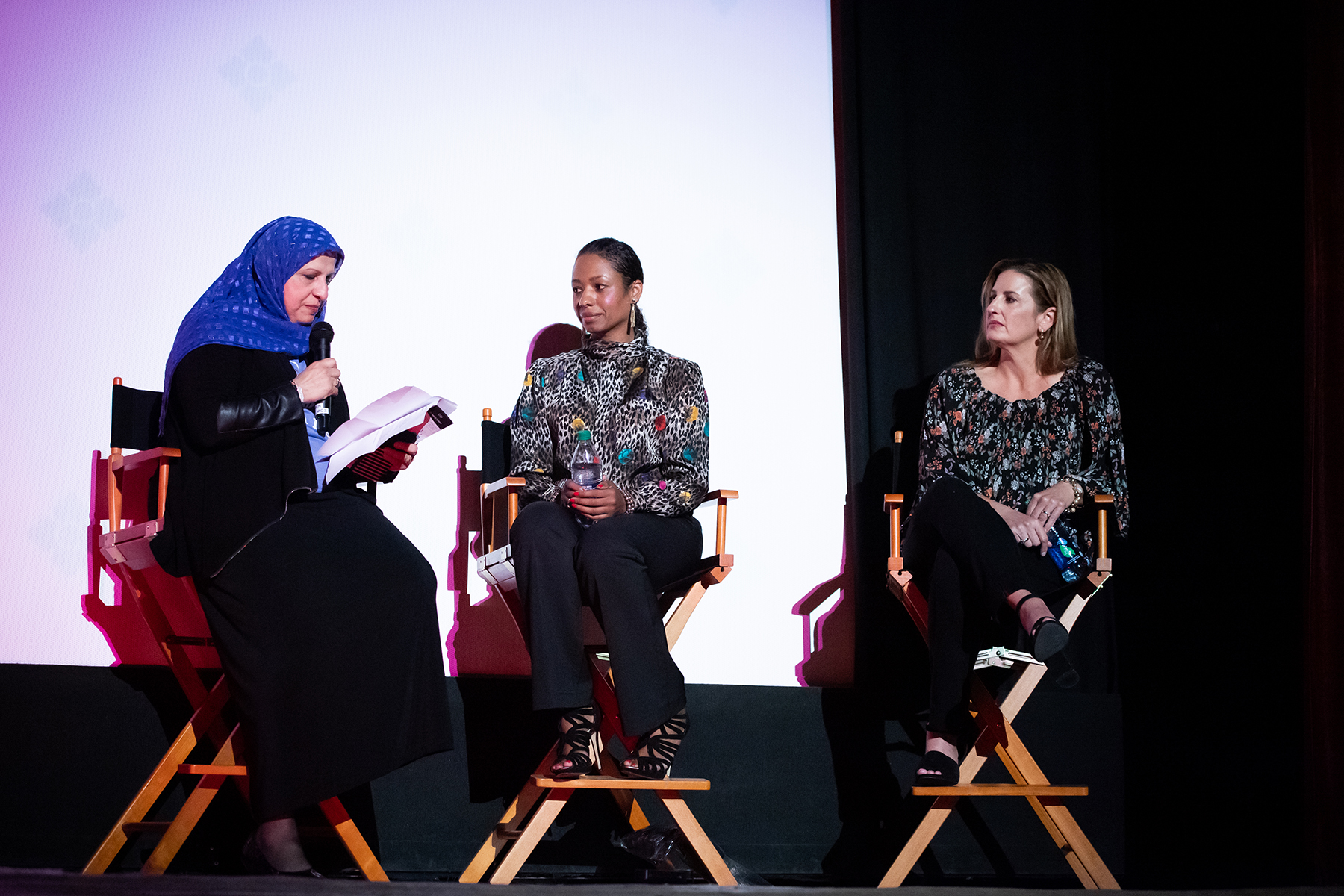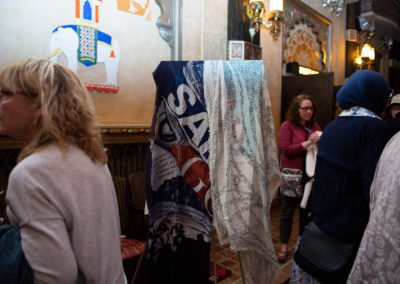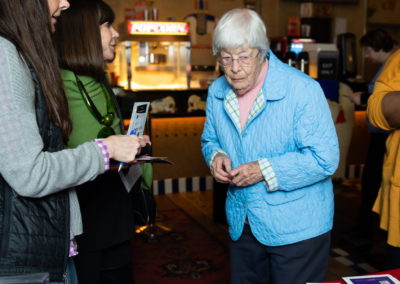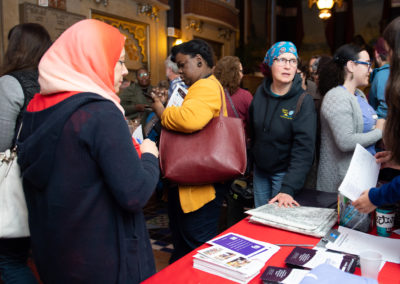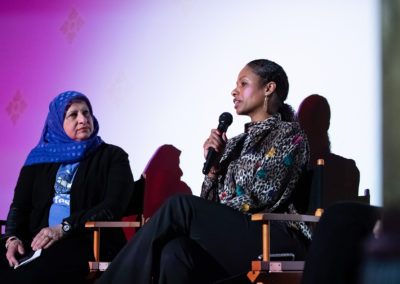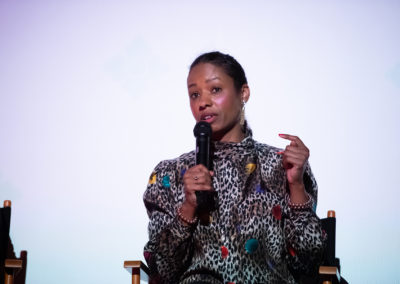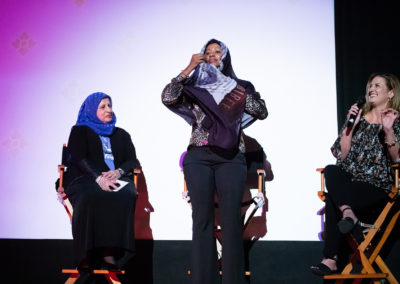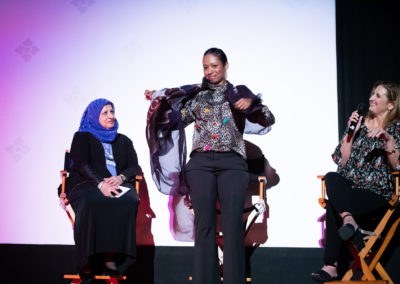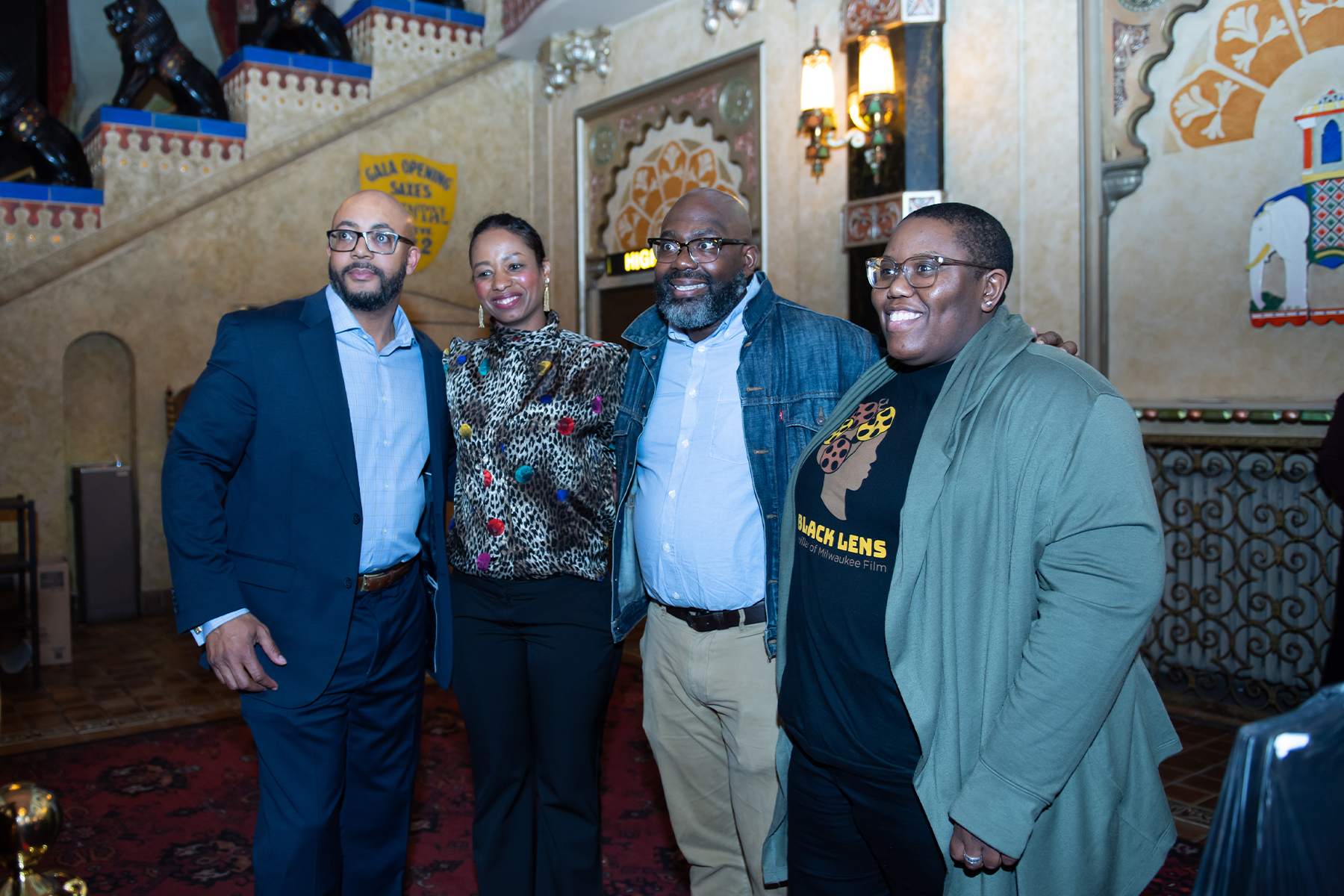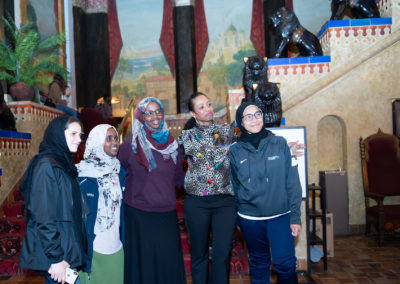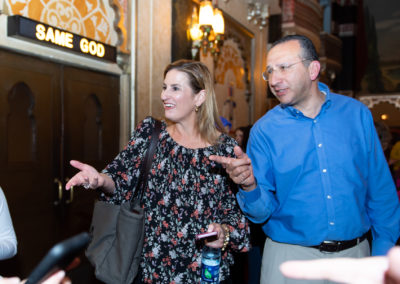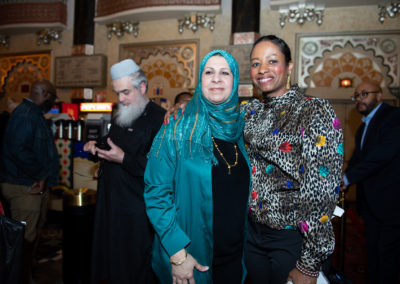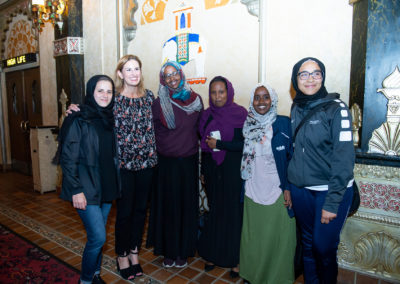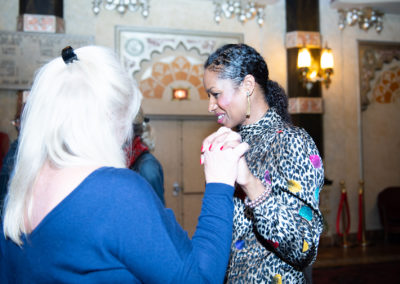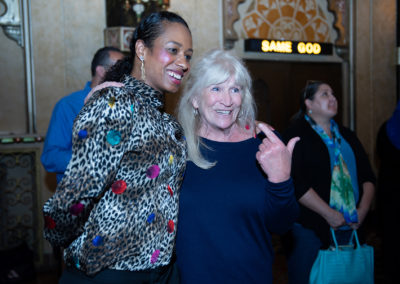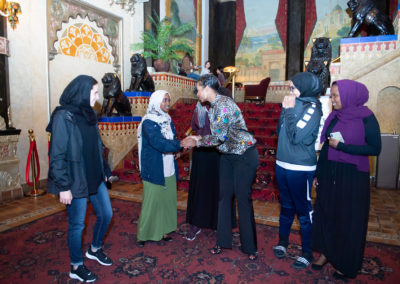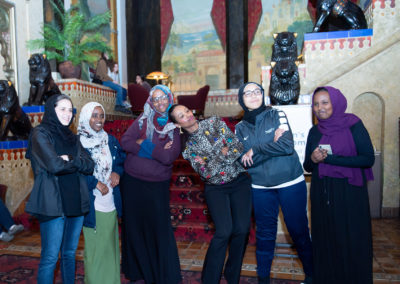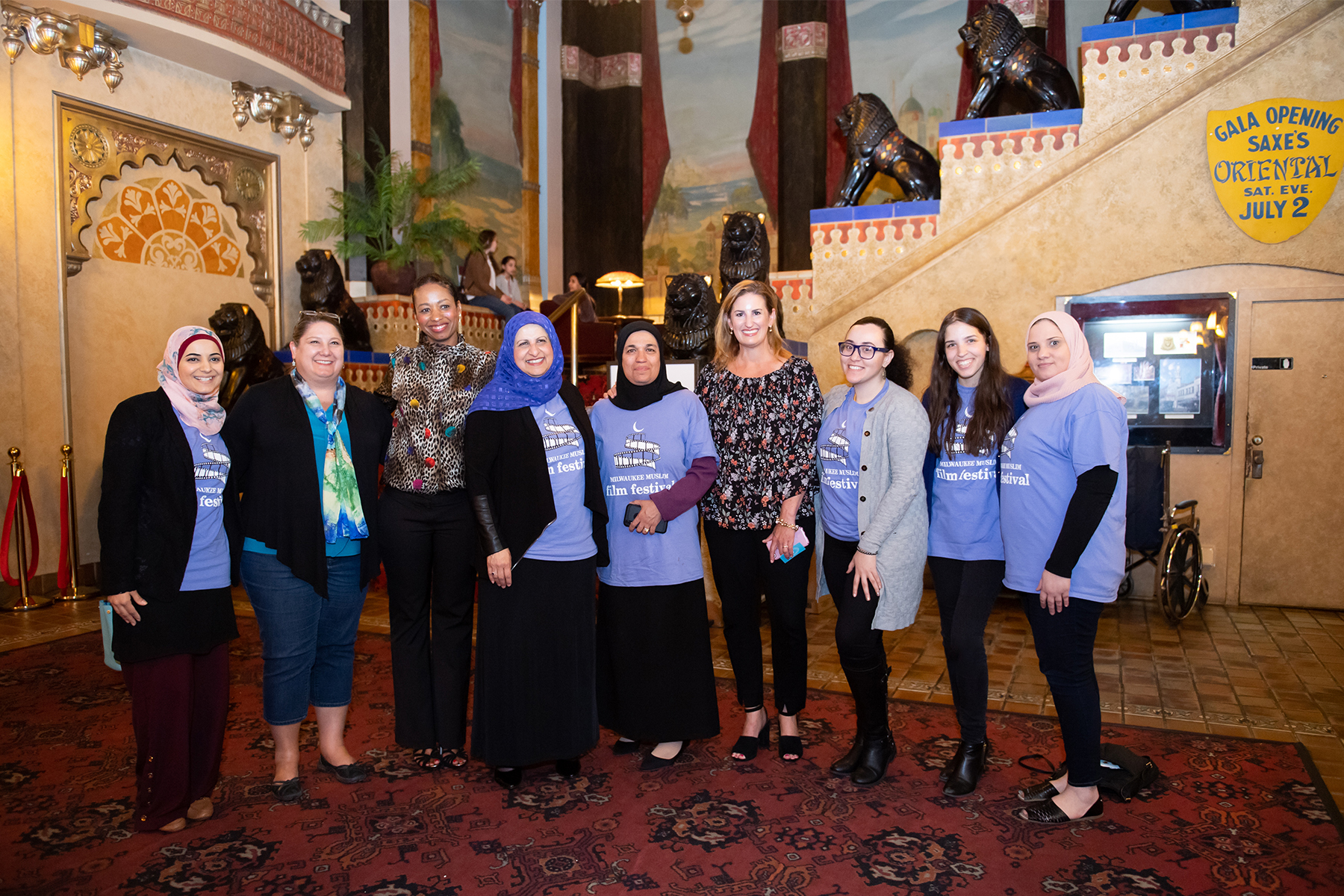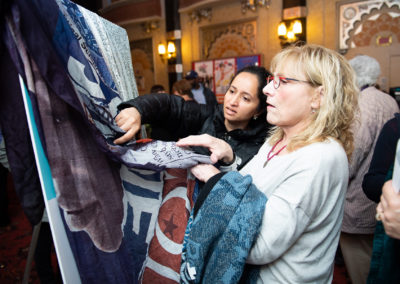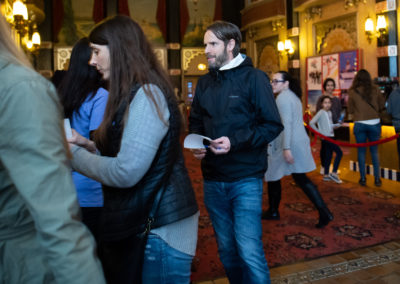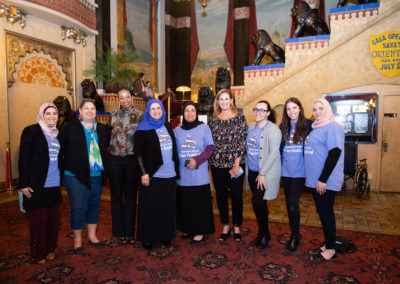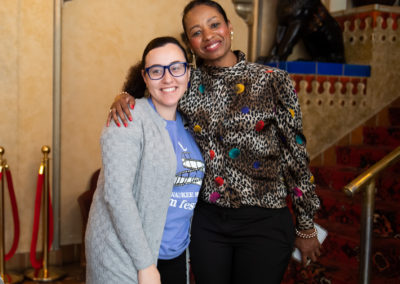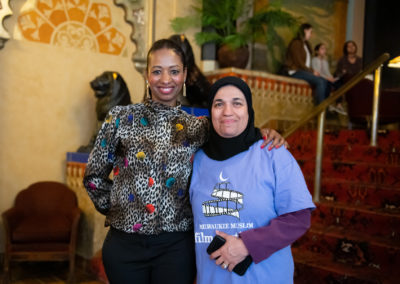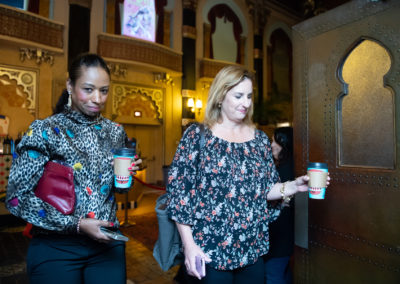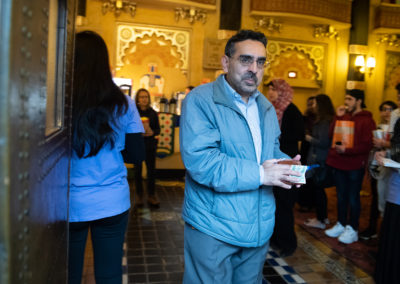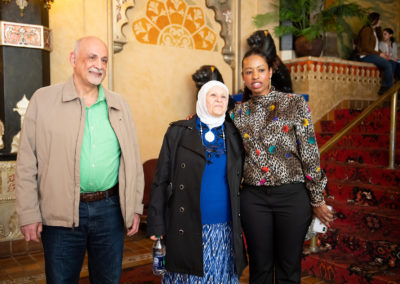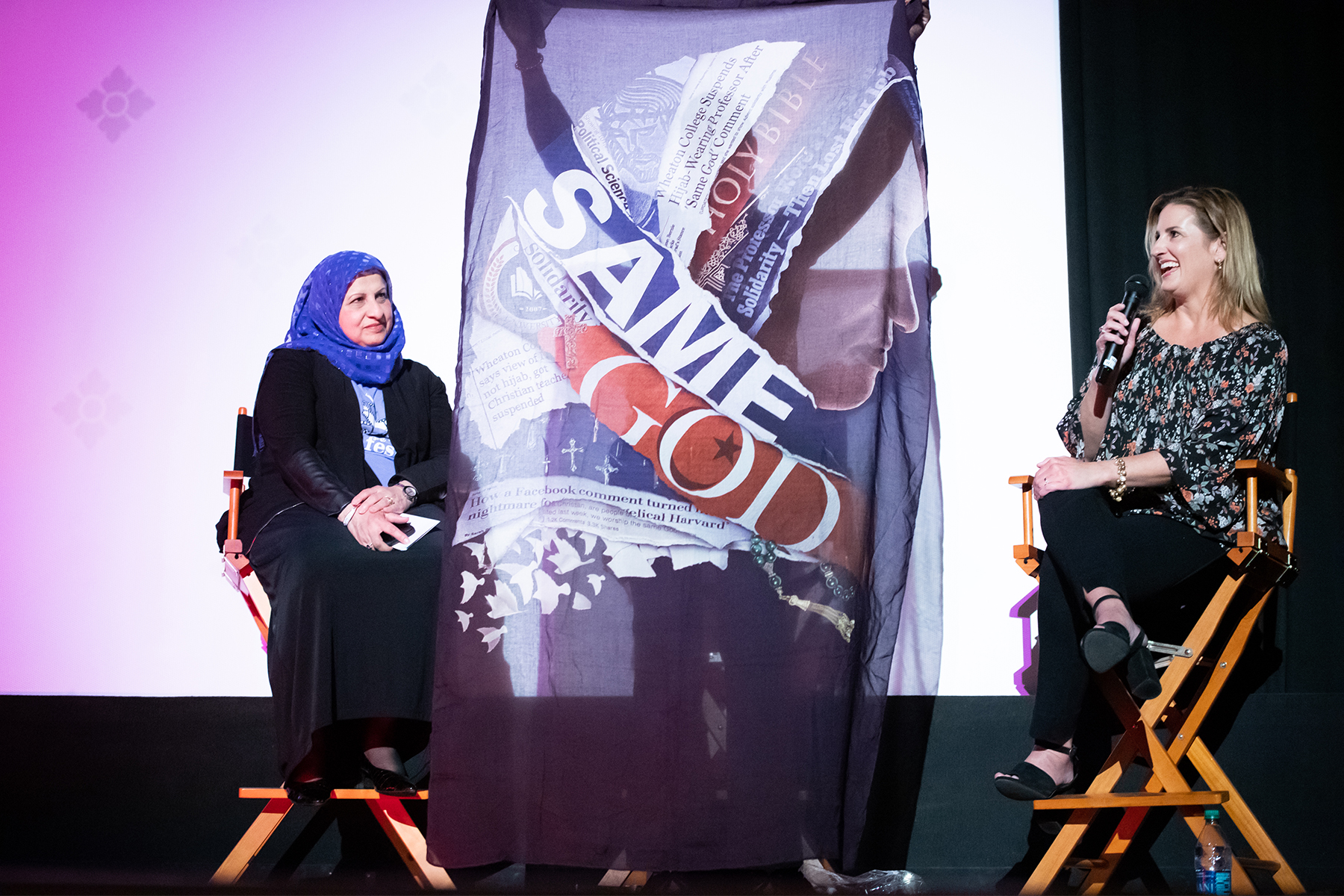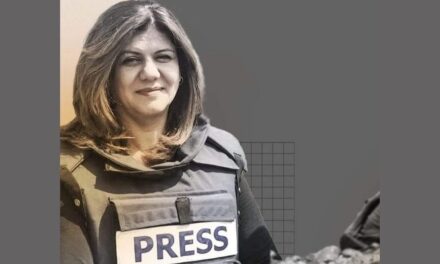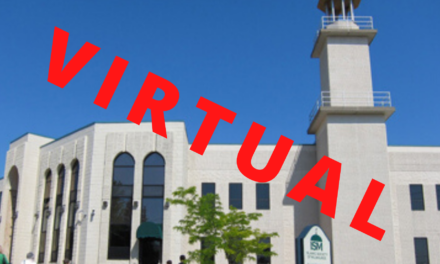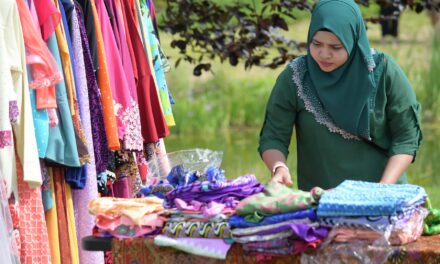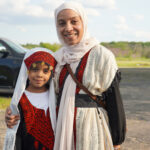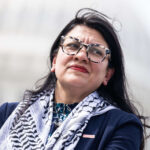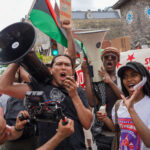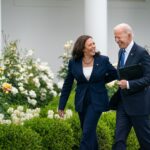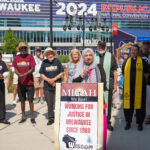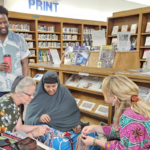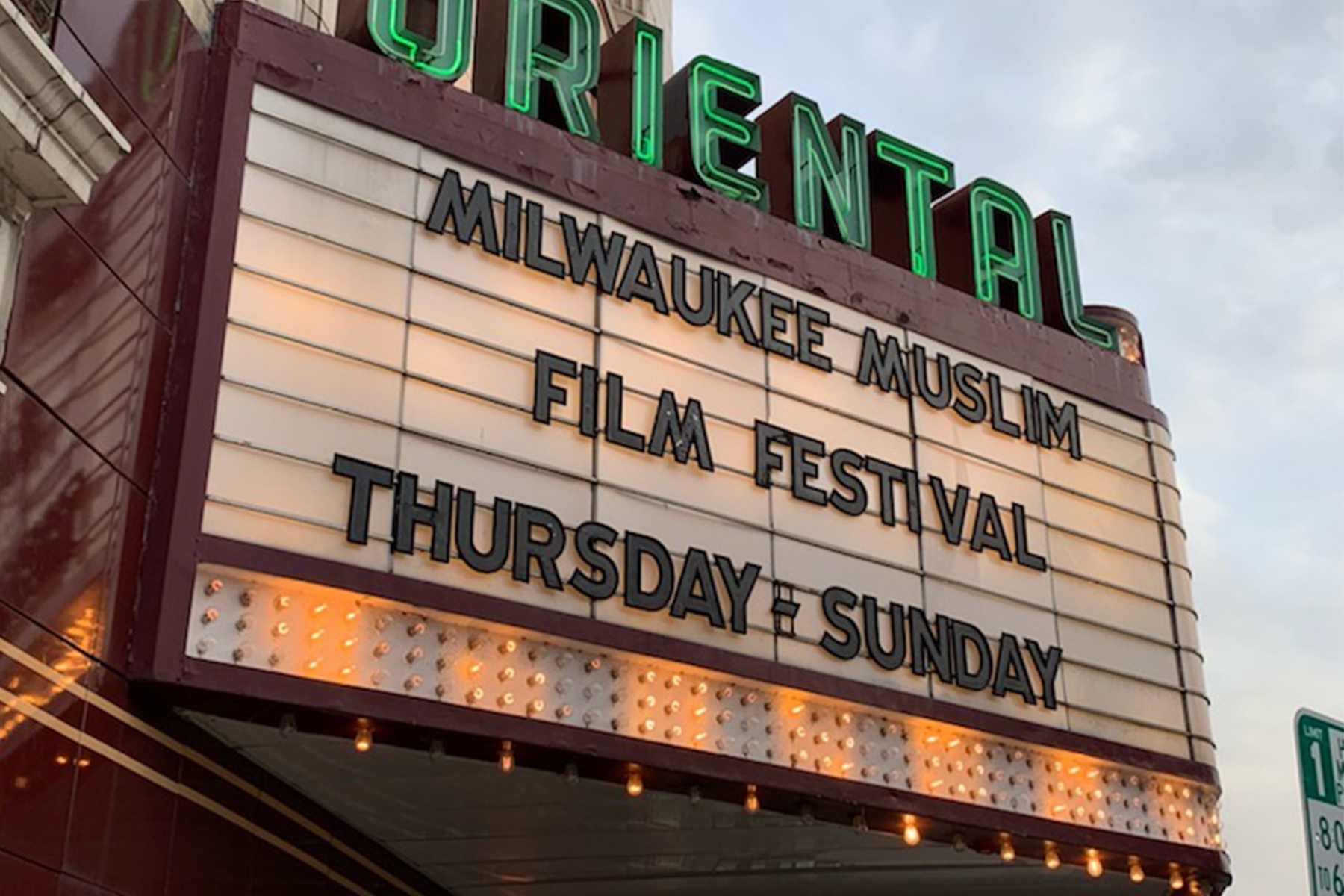
On Thursday, April 25th, nearly 400 people came out to the Oriental Theatre for the 5th Annual Milwaukee Muslim Film Festival’s opening night film, Same God. Kicking off four days of films, this year’s festival was unique in many ways. It was the first time that all of the films were shown in one location and the first time the films were not spread out over two to three weeks. But most importantly, this year celebrated a new partnership with Milwaukee Film, a nonprofit arts organization that is dedicated to engaging the Milwaukee community through entertaining and educational cinematic experiences, it is one of the largest film festivals in the country.
Two of the films in this year’s line-up, Same God and Life without Basketball, were also part of a new partnership with Black Lens. Black Lens was created in 2014, to spotlight the incredible work of African-American filmmakers by bringing their films to the Milwaukee Film Festival and to explore stories and topics that are rooted in the Black community but are relevant to a variety of audiences. Geraud Blanks, the Director of Black Lens, welcomed the audience and introduced the film, he expressed excitement at the potential that was possible with the new collaboration.
The Milwaukee Muslim Women’s Coalition (MMWC) began advertising for their annual Muslim Film Festival almost two months in advance after finalizing a great lineup of films along with creative talkback sessions and events. When asked how they choose their films each year, Janan Najeeb, president of the MMWC, explained the months of researching and evaluating of films by a team in order to find the perfect films from around the world to showcase. The mission of the Milwaukee Muslim Film Festival is to screen films that are thought provoking, entertaining and can create meaningful and relevant dialogues on Islam and the Muslim experience right here in our Greater Milwaukee community. On April 25th, the film Same God proved to do just that.
In December 2015, during a time where the political rhetoric against Muslims was escalating, Dr. Larycia Hawkins, a political science professor at the prestigious Christian evangelical Wheaton College in Illinois, acted upon her Christianity to stand in solidarity with Muslims. She posted a picture of herself wearing a hijab on facebook to embody solidarity with Muslim women who were targeted in the media. A simple gesture she called an embodiment of Christian solidarity changed the trajectory of her life as she became the subject of a theological controversy that cost her tenure, in spite of the fact that she was the first African American tenured professor in Wheaton’s 160 year history. Dr. Hawkins was rebuked and exiled from her evangelical community when her statement: “I love my Muslim neighbor, because s/he deserves love by virtue of her/his human dignity….we worship the Same God.” was determined to be at odds with Wheaton’s core beliefs. The swift and brutal response to a seemingly innocuous Facebook post made Dr. Hawkins question whether her evangelical counterparts worshipped the same God. Linda Midgett, Emmy-award winning producer and Wheaton College alumna, shared the same curiosity, which eventually led to the filmmaking of Same God.
The one hour and 35 minute film offered an eye-opening exposure to a story that is true-to-life. There was murmuring in the crowd at scenes where audience members shared frustrations, other times tears and finally some cheers in agreement with comments within the film such as the one made by Ahmed Rehab, Executive Director of the Illinois chapter of the Council on American and Islamic Relations (CAIR), stating that Dr. Hawkins did more than teach a classroom, “[she] ended up teaching the world.” Another time was when the Reverend Jesse Jackson called her “a modern day Rosa Parks” for her solidarity with Muslim women. It was evident that the audience wanted more.
All members of the audience stood up to give Dr. Larycia Hawkins a long standing ovation when she was introduced and called to the stage for an incredible talk back session. One member of the audience exclaimed, “[she] deserves a standing ovation!” Linda Midgett, the film director, also called up for the talk back session, walked onto the stage holding two beautifully designed scarves, with wording from the film, including “Same God” and “Embodied Solidarity.” The scarves were being sold at the door to help cover the cost of the film. When Linda displayed one scarf, Dr. Hawkins stood up to display the second scarf, wearing it first around her head and then around her neck, making a bold statement of pride in the casual symbol.
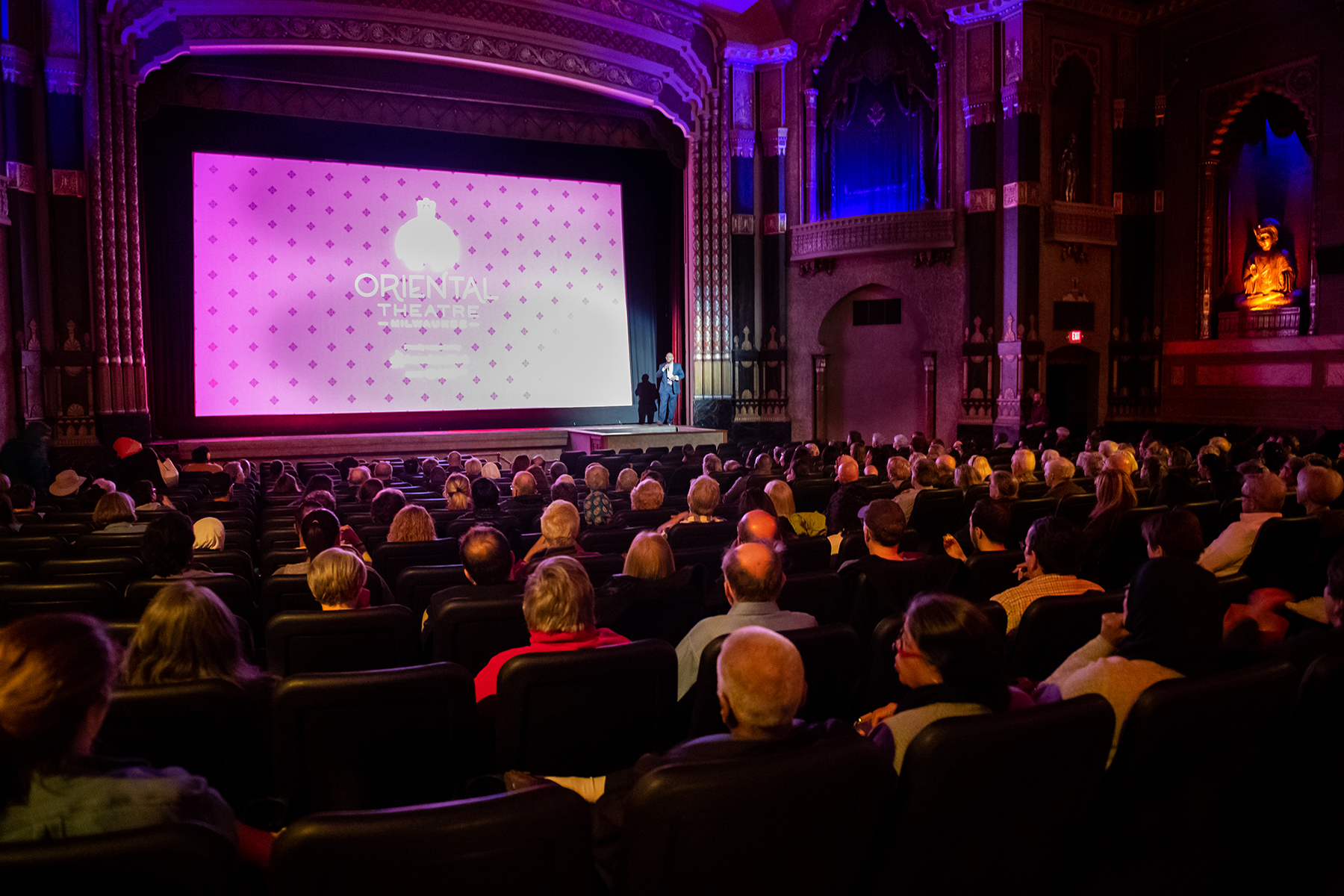
One questioner asked about Dr. Hawkins original intent in wearing the hijab back in 2015 to which Dr. Hawkins responded “My intent was human solidarity first and religious solidarity second.” She went on to say that “hijab is symbolic of Muslim sisters’ deep faith commitment and wearing it in solidarity was my deep faith commitment.” Another questioner wanted to know if Dr. Hawkins views of evangelicalism have changed since her experience. Her response was another one that brought applause from the audience when she said, “growing up, we didn’t talk about it, we just lived it.” in reference to being Christian, “We were never called black or black evangelicals growing up, we were just called Christians.” Linda Midgett added that evangelical means to be called to service in the face of the least and the weak,” both expressing distaste for the current direction of evangelicalism but nothing deterring their devotion to their faith.
After forty minutes of questions, there were still many hands up waiting for a chance to speak, but the theatre needed to be cleared. However, that did not stop an eager audience. People lined up outside the theatre doors, some to take pictures with Dr. Hawkins, and others discussing their gratitude for her “exemplary strength to do the right thing.” Martha Larson, one of the audience members, shared that she couldn’t get over how peaceful Dr. Hawkins spoke, “…she spoke from the heart.” While her friends waited in line to take their picture with Dr. Hawkins, Sumaya Abdi, a young Muslim Somali girl wearing hijab explained that her favorite part was seeing “the amount of support she got from different angles…” she said, “it surprised me and it felt good to see.”
While the film and talk back ended around 9:30pm, the halls of the Oriental Theatre remained full with attendees continuing discussions. Not only did the opening night of the 5th Annual Muslim Film Festival spark great conversations as it aimed to, but it also set the expectations for the amazing films and festivities planned for the rest of the weekend. A successful opening night is one of the greatest celebrations for two incredible organizations coming together to enhance a similar vision of educating through entertainment, making the 5th Annual Milwaukee Muslim Film Festival one of the country’s leading Muslim film festivals!
